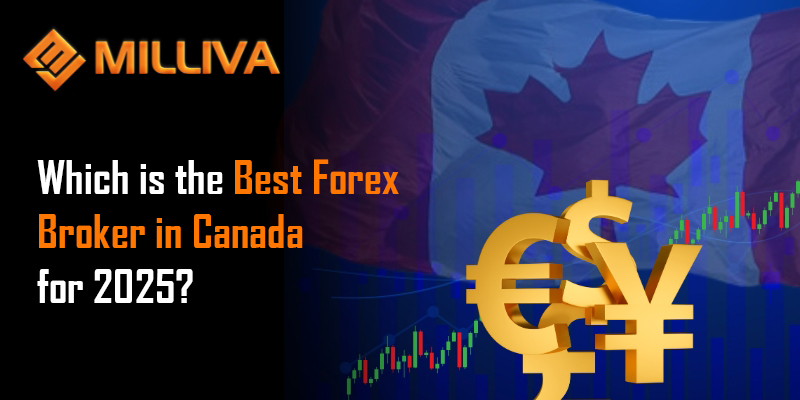What Does Spread Mean in Forex and How It Is Calculated?

![]()
You must first understand the overall structure of every forex deal in order to properly understand the forex spread and how it impacts you. All trades done through intermediaries. Who fee for their services, according to one view of the trade structure. The “spread” is the difference between the bidding and the asking price charged by the trade.
What is Spread in Forex Trading ?
The forex spread indicates two prices: the purchasing (bid) and selling (ask) prices for a certain currency pair. Traders pay a set price for the currency and must sell it at a lower price if they wish to sell it back immediately.
What is the Formula for Calculating the Foreign Exchange Spread?
The foreign currency spread is commonly state as a percentage and may be compute using the following formula:
Where:
Ask price – The lowest price at which a currency trader is ready to sell units of the currency is refer to as the ask price.
Bid Price – This is the most a currency dealer is ready to pay for a unit of the currency.
For example:
If a trader is prepare to sell a certain number of units of a particular currency for the equivalent of $1.50. But a trader is only willing to purchase a certain number of currency units for $1.00. The foreign exchange spread’s midpoint price is (1.50+1.00)/2 = $1.25.
Understanding The Difference Between a High and Low Spread
It is vital to know that the FX spread might fluctuate during the day. Ranging from a ‘high spread’ to a ‘low spread’. This is due to the fact that the spread may be alter by a variety of factors such as volatility or liquidity.
Some currency pairings, such as emerging market currency pairs, have a wider range than major currency pairs. When compared to emerging market currencies, your major currency pair’s trade at a larger volume, and bigger transaction volumes tend to result in narrower spreads under normal conditions.
Furthermore, it is well knowledge that liquidity may dry up and spreads can expand in the run-up to important news events and between trading sessions.
High Spread
A High spread indicates that the bid and ask prices are significantly different. When compared to major currency pairings, emerging market currency pairs have a High spread. A High spread than usual usually means one of two things: significant market volatility or limited liquidity owing to after-hours trading. Spreads can widen dramatically before major news events or during major shocks (Brexit, US Elections).
Low Spread
A little difference between the bid and ask price referred low spread. Trading when spreads are low, such as during key forex sessions, is favorable. A low spread often suggests minimal volatility and great liquidity.
Spread Influencing Factors
The extent of bid-ask spreads that occur on specific trading floors can be influenced by a variety of variables. Consider the following scenario:

1. Trade volumes
Higher trading volumes, in general, indicate a more liquid market, which means a narrower bid-ask spread. As the foreign exchange spread narrows, so does the gap between dealer and buyer currency valuations.
As a result, dealers may more quickly identify a buyer with a bid price that is comparable to their ask price and complete a trade. Similarly, a buyer will have an easier time finding a dealer who will accept their offer to acquire currency at a specific price.
Higher foreign currency spreads usually imply fewer trading volumes since buyers and sellers are having a harder time locating a willing trade partner.
2. Economic/Political Risks
Currency risk is generally connected with countries that have volatile political environments or unstable economies. These economies often have very high inflation rates and lack a disciplined approach to monetary policy. As a result, the foreign exchange spread will increase.
This is due to dealers viewing the currency as a high-risk investment and hence only selling it at a premium. Buyers want a lower price to compensate for the increased risk.
As a result, the bid-ask spread will widen, and transaction volumes will fall, as previously stated.
3. Currency Volatility
If a currency lacks a disciplined monetary policy and a stable central bank, it is more vulnerable to value fluctuations. As a result, dealers will raise ask prices, resulting in an increase in the bid-ask spread.
Advantages of Low Spread in Forex
The reduction in up-front costs is the most obvious benefit of using a low spread broker. Lower spreads translate to lower prices for you because the spread is a type of commission charged by forex brokers. Low spread brokers also provide a more direct trading experience, as a lower spread means that the prices quoted are closer to the true market price of a currency pair.
A low spread broker makes calculating possible earnings and losses from each transaction easier, allowing you to adopt a more educated trading plan. If you are a day trader that prefers to earn money from several incremental price changes in currency pairings, narrower spreads are absolutely something that should be prioritized.
Know about Spread Details in Milliva- The Best Trading Platform
The spread value Milliva offers their clients is 0.00 and the spread value differs with each account.
Types of Spread Account In Milliva
Standard spread
ECN spread
Islamic spread
The difference between the bid and ask prices of a currency pair is known as a forex spread, and it is commonly measured in pips. When trading forex, it’s critical to understand what causes the spread to grow.
Major currency pairings have a lower spread since they are traded in big volumes, whereas exotic pairs have a greater spread. When trading in the currency market, see our advice on money and risk management.

Visit us : www.milliva.com






What Is the Market-Maker Spread - Forex Trading
27th Sep 2022[…] This spread intended to compensate for the risk. Of market-making by expressing the potential return. The amount of the market-maker spread impact by the risk in a particular market. Excessive volatility or a lack of liquidity in security will almost certainly increase the size of the market-maker spread. […]
What Are Bid And Ask Price in forex Trading - 2022
28th Sep 2022[…] currency pairings are usually the smallest. During the three hours after the New York session, the bid-ask spread for most pairs is significantly […]
How to Trade with MetaTrader - Forex Trading Tutorial
19th Oct 2022[…] MetaTrader 4 is an excellent forex trading platform, which explains its widespread appeal among retail traders; but, if you want to use more […]
Forex Trading Hours - Forex Trading Sessions for Traders
19th Oct 2022[…] Asian forex trading hours end, the European session takes over to keep the currency market busy. This FX time zone is quite congested, with a number of significant financial markets represented. To date, London has […]